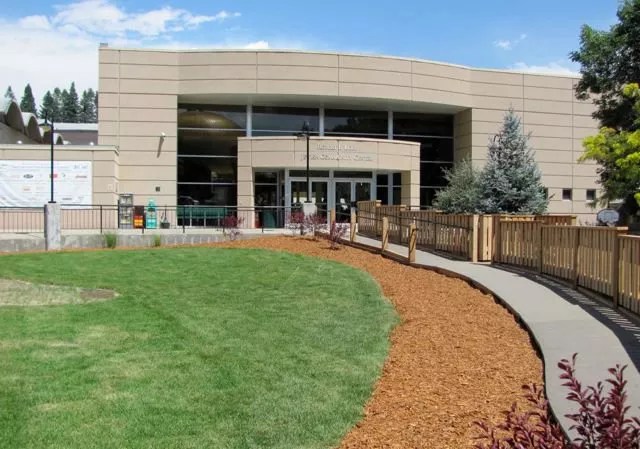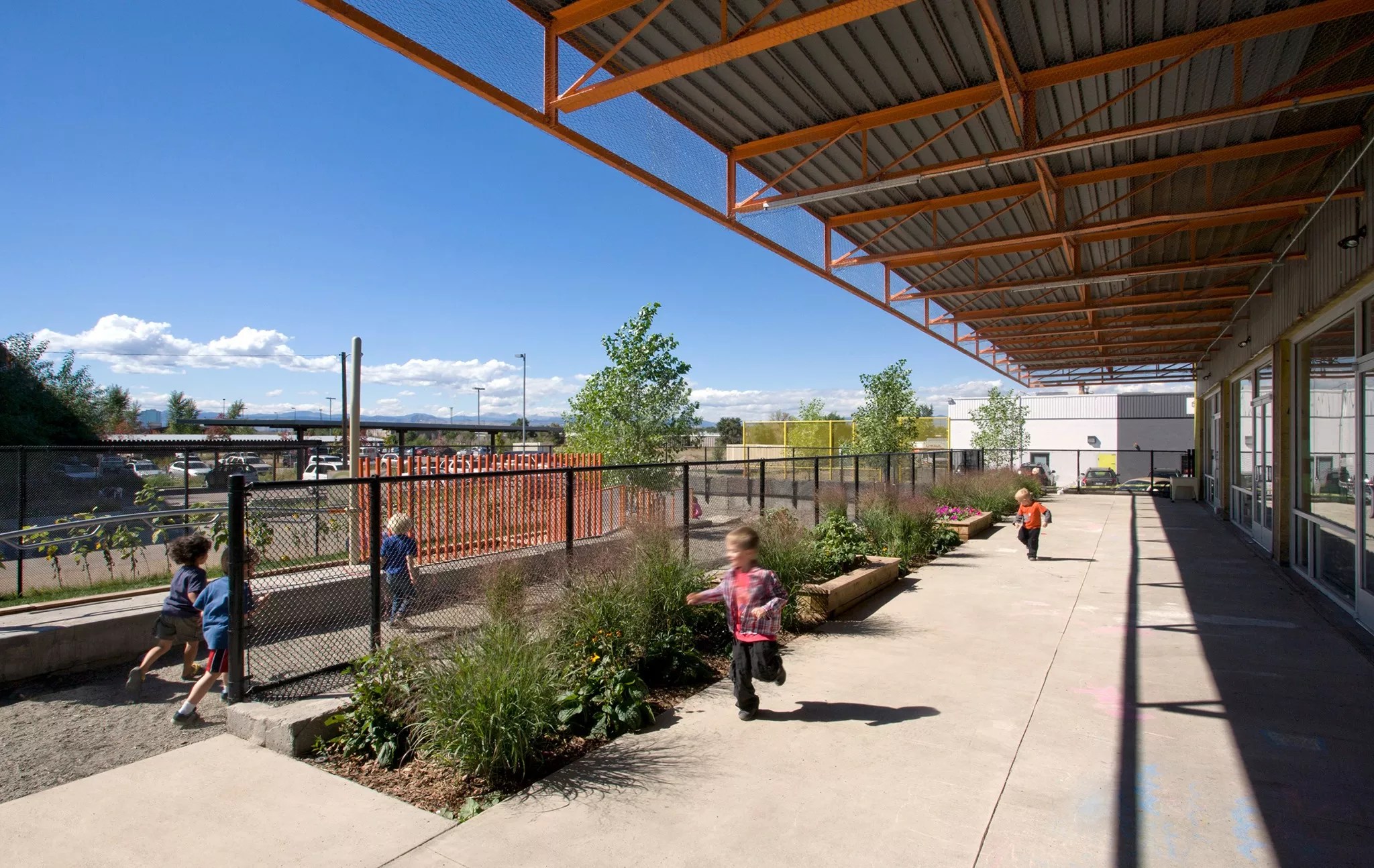
Denver JCC on Facebook

Audio By Carbonatix
Teachers at two early child education facilities in Denver are currently unionizing, but things aren’t going so smoothly for one of the groups.
According to teachers at the Staenberg-Loup Jewish Community Center and OPENair Academy @ RiNo, their jobs need to provide more trust and investment in them so that they can provide the best education possible for the children they teach.
Teachers at the JCC Early Learning Center went public with the Early Learning Educators Collective on February 29. Founded by a majority of the teachers at the school, the collective aims to achieve a union working with the Communications Workers of America, with JCC teachers expected to hold an election with the National Labor Relations Board (NLRB) in the next month.
The south Denver pre-kindergarten school has yet to recognize their union, however, and teachers say administrators have hired Holland & Hart, a firm that touts decades of experience in “union avoidance” on its website. Additionally, the JCC is currently hosting meetings during teacher prep time to discuss unionizing with them, but without providing more time for prep work or coordinating, according to complaints; the JCC has also allegedly failed to ensure that its employees aren’t left alone in classrooms during the meetings.
Three teachers at the JCC say they hoped to work with their bosses peacefully but are disappointed that management doesn’t seem to be willing to do so. Margaret Osburn has worked at the Early Learning Center for three years and says the teachers have been discussing unionization since early 2022.
“A few of us, especially the members of the organizing committee, just started asking each other, ‘What can we do? What’s available to us to try to make things better?'” Osburn recalls. “We had friends at work who were having a hard time making it through their day.”
Being an educator for toddlers takes an emotional toll, Osburn notes, because it’s important to maintain an outwardly happy appearance around the children at all times. Additionally, staff numbers dwindled after the early days of the pandemic, and the school was having a hard time hiring new teachers. Those who stuck around had to do more with less help, she adds.
Though staffing has improved since then, the new union is asking for teachers to have more input on decisions and the overall vision for the school.
“We’re professionals, we’ve dedicated our careers and our lives and our hearts to doing the difficult work of caring for children, especially young children,” Osburn says. “We feel that we’re capable, and we have the necessary qualifications to create a culture that really has equal representation and equal opportunity for all of our teachers.”
That self-determination would help with the retention problem, too, by providing more job security and keeping teachers in their roles, the union argues.
At OPENair Academy, teachers are also unionizing through the Communications Workers of America, which has helped them start the OPENair Workers United Early Learning Educators Collective. OPENair teachers have similar concerns to those of the JCC teachers about staffing and decision-making, as well as wanting a fairer wage scale among its sixteen employees, fourteen of whom signed on to a union letter in February.
“I am so confident about the path ahead,” says OPENair teacher Hunter Shelton. “I really think this union is what the school needs.”
Shelton has been teaching at OPENair since last May. He says there were often communication breakdowns between management and teachers that created festering problems. With a union agreement now in place, Shelton believes problems should be resolved more smoothly in the future. Additionally, the teachers have found inequity in individual pay, noting that it doesn’t always measure up with experience and education levels. They’re hoping to address that disparity soon.
Preschool Teaching Unions in Denver
Most K-12 teachers are represented by unions, and these preschool teachers believe early childhood educators should be, as well. Teachers at public preschools are represented by the same union as other public school teachers in Denver, but OPENair’s group is the city’s only recognized union at a private preschool.
“This is about more than just our school. This is about looking to make functional changes in a broken system for all children, families and educators,” says Katy Roberts, another JCC teacher. “It’s going to take change from everyone, but no one can fix the whole problem. No one is coming to save us.”
Roberts says more government funding could help. Michelle Lanzarone, who teaches at OPENair Academy @ RiNo, agrees.
“Educators are viewed as babysitters more than anything else, especially in early childhood education,” Roberts says. “This is an industry solely based on parents’ tuition that is out of control for parents to keep up with, and without support from other avenues…personally, I think it’s a systemic change that has to happen as far as how we view early childhood education as a whole.”
Denver JCC CEO Mike Sophir says the JCC is proud of its salary, benefits and flexibility for teachers.
“We value all of our staff members and have worked hard to create a respectful and caring environment,” Sophir says. “We respect the rights of employees to organize a union, and at the same time, we also respect the rights of those who do not support organizing or being a part of a union. … We will do our best to be sure that everyone’s views, for or against, are respected.”

OPENair Academy teachers had their union voluntarily recognized in March.
OPENair Academy on Facebook
Educators had hoped to avoid a Labor Relations Board vote but say they have a supermajority of staff, at about 75 percent, who signed their mission statement. They filed for an election March 9.
“We want everyone to be able to make their own decision, but we already have a majority, so it is kind of disappointing that 29 people saying ‘Yes, we think this is a good idea’ wasn’t enough to reassure upper management that we know what we’re talking about,” Osburn says.
Teachers have been asked this week to participate in meetings in which the school will explain why it doesn’t want to voluntarily recognize the union. Roberts says having to attend the meetings has had a negative impact on their classrooms.
“This has resulted in my toddler class having the two primary teachers miss out on almost three hours of their day,” she says. “Our inclusion specialist has been unable to support children in other rooms because she was covering these meetings. In addition, an interpreter was not offered to staff who speak Spanish. At this time, it appears I will not be provided with planning time to lesson plan, communicate with families or work on documentation and weekly writing due to the meetings.”
The JCC’s lack of voluntary recognition hurts its teachers more in light of OPENair workers having their union recognized almost immediately by upper management – though a brief miscommunication between OPENair educators and administrators resulted in the school being closed for a day.
“In light of our values to collaborate and create open channels with our staff, we look forward to working with CWA to provide the highest-quality educational programs that inspire children and cultivate a passion for knowledge,” OPENair management said in a joint statement with its employees the afternoon of February 20.
The JCC teachers say they are thrilled for the OPENair teachers and hope the wave of unionization among their workforce continues to grow.
“We really are a workforce that asks and requires a lot out of people,” Osburn says. “I think it’s fair enough to say that when we trust people to put mental and emotional and physical labor into a job, we should also trust their judgment when they say ‘I need support.'”